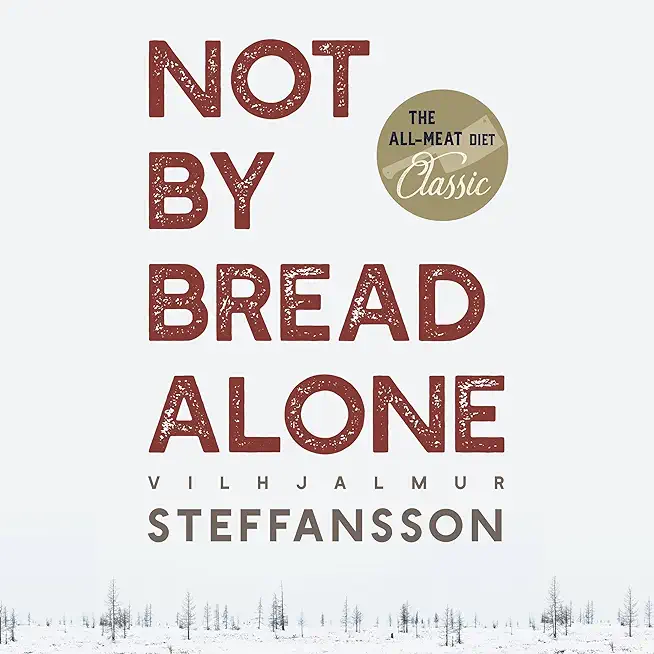
description
t Vilhjalmur Stefansson spent years living with indigenous Inuit and Eskimo people. He noted their general healthiness (and good teeth), and an absence of many of the diseases that plagued western cultures, such as scurvy, heart disease, and diabetes. Observing their dietary habits, he determined that their primary food was meat, both lean and fatty, and that their diets were very low in sugary or starchy carbohydrates. Was this meaty diet the key to their good health?
Stefansson's classic Not By Bread Alone chronicles a 1928 scientific experiment, conducted by the Russell Sage Institute of Pathology at Bellevue Hospital in New York, in which Stefansson and his colleague Dr. Karsten Andersen ate a meat-only diet for one year. The two men stayed healthy and fared very well, leading him to claim that we should reexamine our notion of what foods constitute a healthy diet.
Later chapters promote the benefits of pemmican, a compact, portable, and high-energy food consisting of a concentrated mix of fat and protein made from dried lean bison meat, sometimes mixed with berries. Pemmican is like the original energy bar, and Stefansson spent considerable time and energy urging the military to adopt it for emergency rations.
This book is essential reading for anyone who wishes to eat an all-meat diet or wants to learn more about the health benefits of a low-carbohydrate diet of meat and fish.
Stefansson's classic Not By Bread Alone chronicles a 1928 scientific experiment, conducted by the Russell Sage Institute of Pathology at Bellevue Hospital in New York, in which Stefansson and his colleague Dr. Karsten Andersen ate a meat-only diet for one year. The two men stayed healthy and fared very well, leading him to claim that we should reexamine our notion of what foods constitute a healthy diet.
Later chapters promote the benefits of pemmican, a compact, portable, and high-energy food consisting of a concentrated mix of fat and protein made from dried lean bison meat, sometimes mixed with berries. Pemmican is like the original energy bar, and Stefansson spent considerable time and energy urging the military to adopt it for emergency rations.
This book is essential reading for anyone who wishes to eat an all-meat diet or wants to learn more about the health benefits of a low-carbohydrate diet of meat and fish.
member goods
No member items were found under this heading.
Return Policy
All sales are final
Shipping
No special shipping considerations available.
Shipping fees determined at checkout.







